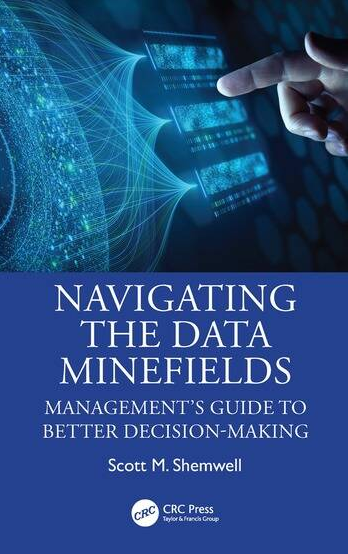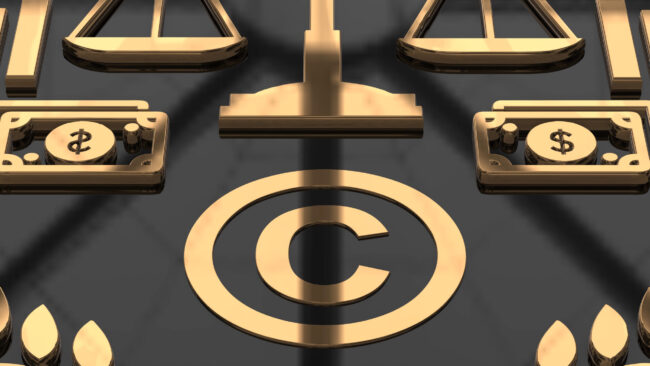Disclaimer: The author is not an attorney, and this document is not meant to be a legal opinion in any sense. Interested readers should contact their legal counsel for any Intellectual Property (IP) determination. This blog simply raises a question that is generally not addressed regarding ownership rights of the content and products developed using artificial intelligence emerging technologies. One suspects that going forward, this issue will become more forefront.
Moreover, this is a fast-moving environment with new local laws and promulgated regulations continuously updated. Readers are cautioned that some of the materials herein may be quickly dated. Appropriate legal counsel and other experts should be consulted.
Like most new software technologies, there is a period of the Wild West where anything seems to go. Artificial Intelligence (AI) has been no different, but now these horses are beginning to be reined in.
It is generally accepted that the ownership of content developed using third party software belongs to the generator of said content. Data, the results of analytics and their interpretation, computer generated audio video materials, etc. are generally covered by this convention and codified by law. The spreadsheet vendor does not own the financial analysis that leads to major value add to the firm. Conversely, if the financial model is flawed, the software developer is generally not liable.
However, Artificial Intelligence is a different technology model. It dictates that organizational AI policies recognize the disruptive change caused. For example, the publisher of my new book, Navigating the Data Minefields: Management’s Guide to Better Decision-Making has issued its author, AI Policy.
An AI engine searches for data and information from a wide variety of sources. It then amalgamates and analyzes and/or develops what some consider a new product or solution–document, image, or new approach/model, e.g. medical technique. However, did the AI secure permission from the data owner(s) or even cite its source(s)? The most likely answer is no. A follow-on statement might be, “why do we need that?”
Copyright
Data Privacy
Data privacy and security are major issues organizations must deal with, and the regulatory burden is onerous. Most readers have heard of HIPPA; the need to keep individual medical records confidential. HIPPA is symptomatic of the need to treat ALL data in secure and private.
From the GDPR, “The General Data Protection Regulation (GDPR) is the toughest privacy and security law in the world. Though it was drafted and passed by the European Union (EU), it imposes obligations onto organizations anywhere, so long as they target or collect data related to people in the EU. The regulation was put into effect on May 25, 2018. The GDPR will levy harsh fines against those who violate its privacy and security standards, with penalties reaching into the tens of millions of euros.”
The EU regulations are viewed as the ‘gold standard’ and others worldwide are in the process of emulating them. Increased date management regulations are a given, as is their impact on AI learning.
IP Guardrails
Individuals and organizations jealously guard their intellectual properties, as they should. Just think of the significant value Disney has built over 100 years from a cartoon mouse.
Some may see AI as an assault on the organization’s core and take legal action they believe appropriate. Others will try to capitalize on loopholes. This is not different behavior from the IP current practice.
AI advocates will find themselves in the midst of what could be a significant number of legal challenges as the technology and its regulation matures. The current long-standing legal battles over social media platforms is but one example of this process.
IP Ownership of AI Generated Content: The Movie
Summary of the Video
Briefly, in the video dated January 7, 2024, the attorney makes the following key points:
- Copyright extends only to humans and AI content generated by products such as ChatGPT do not meet the ‘human’ authorship test. However, if a human is actively engaged in the development of (and change) said content, things get less clear.
- Regarding AI generated inventions, Patent law becomes more relevant. The speaker argues that ‘at least today’ patent laws mirror copyright because human creativity is key.
- As far as AI generated Trademarks are concerned, these products such as logos, tag lines, etc. do not enjoy original authorship protection, but their ‘first use’ has precedence. For more information he references the U.S. Patent and Trademark Office (USPTO).
- Finally, he states that this area of the law is unfolding, and change is likely.
These points were transcribed by this pundit. As such, they are only his perception and must be viewed skeptically when addressing a specific ‘real’ question regarding this subject matter. The attorney’s fifth bullet is probably the most important one.
Final Thoughts
Intellectual Property ownership is an area that technologists and software developers are generally not involved with. Additionally, many have historically treated the content found online as if it is in the public domain. We now know that authorship should be attributed.
For most of the things individuals and organizations do with online content this is not an issue. Blogs, political opinion and technology critique among others come to mind.
However, AI has the potential to change fortunes (wealth, reputation and other) of individuals and organizations. Finally, the regulatory environment is evolving, and dramatic changes are most likely forthcoming.
Individual creators, management and others have a responsibility to assure AI developed content meets, and not just the regulations (in each jurisdiction the firm operates in). Moreover, governance enforcement models must add AI technologies and assure that others are not infringing on the firm’s IP with potential risks of capital and reputational loss.
One Last Thing
With the need to protect data as well as assure all key intellectual property is protected, will this negatively impact on the output of AI models? What will be the basis of gen AI training if it cannot gain access to the universe of data they require? And yes, I know we often sign away certain rights when we engage with some organizations, but we can ‘opt out’ of allowing access to our data.
Another Blog for a later time but in the meantime, just a question.
How is your organization addressing these and other Intellectual Property issues emerging from Gen AI and other content developers?
Pre order our new book
Navigating the Data Minefields:
Management’s Guide to Better Decision-Making
We are living in an era of data and software exponential growth. A substantive flood hitting us every day. Geek heaven! But what if information technology is not your cup of tea and you may even have your kids help with your smart devices? This may not be a problem at home; however, what if you job depends on Big Data and Artificial Intelligence (AI)?
Available April 2025

For More Information
Please note, RRI does not endorse or advocate the links to any third-party materials herein. They are provided for education and entertainment only.
See our Economic Value Proposition Matrix® (EVPM) for additional information and a free version to build your own EVPM.
The author’s credentials in this field are available on his LinkedIn page. Moreover, Dr. Shemwell is the coauthor of the recently published book, “Smart Manufacturing: Integrating Transformational Technologies for Competitiveness and Sustainability.” His focus is on Operational Technologies.
We are also pleased to announce our forthcoming book to be published by CRC Press in 2025, Navigating the Data Minefields: Management’s Guide to Better Decision-Making. This is a book for the non-IT executive who is faced with making major technology decisions as firms acquire advanced technologies such as Artificial Intelligence (AI).
“People fail to get along because they fear each other; they fear each other because they don’t know each other; they don’t know each other because they have not communicated with each other.” (Martin Luther King speech at Cornell College, 1962). For more information on Cross Cultural Engagement, check out our Cross-Cultural Serious Game. You can contact this author as well.
For more details regarding climate change models, check out Bjorn Lomborg and his book, False Alarm: How Climate Change Panic Costs Us Trillions, Hurts the Poor, and Fails to Fix the Planet.
Regarding the economics of Climate Change, check out our blog, Crippling Green.
For those start-up firms addressing energy (including renewables) challenges, the author can put you in touch with Global Energy Mentors which provide no-cost mentoring services from energy experts. If interested, check it out and give me a shout.
